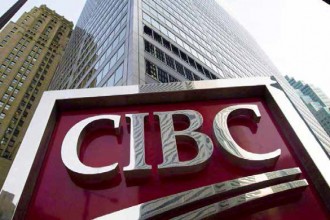British Prime Minister David Cameron has announced a £360 million (US$544 million) development package for the Caribbean, which will provide grants for infrastructure projects like roads and bridges.
Speaking to the joint Houses of Parliament in Jamaica he announced a package of bilateral aid, featuring:
• £300 million for a new UK-Caribbean Infrastructure Partnership Fund to build new ports, roads and bridges to boost trade and growth;
• £30 million to make health facilities more resistant to natural disaster; and
• £30 million for new programmes to support economic growth.
“This money could help to unleash trade across the region with new roads, new bridges, and new ports to help speed freight movements,” Cameron said.
An agreement was reached to build a new correctional facility in Jamaica, as part of measures to improve the country’s criminal justice system.
“This, I believe, is in the interest of both of us and is a good example of how we can work together to benefit people here in Jamaica,” Cameron stated.
He also announced that over the next five years, the UK will be spending US $9 billion on climate financing, and said he was determined to ensure some of that money is spent in the region. “We have spent more than £60 million here in the Caribbean over the last five years to help the countries deal with the effects of climate change but frankly, I think we can do much more,” he said.
Cameron and the Grenadian Prime Minister Dr. Keith Mitchell saw the long term after-effects of natural disasters when they visited the small town of Gouyave. They visited the sole remaining nutmeg processing plant after Hurricane Ivan hit the country in 2004 and viewed a bridge which had also been severely damaged by the hurricane and subsequent tropical storms. The bridge is already earmarked for DFID/World Bank support but it demonstrates the kind of project that could benefit from the new UK-Caribbean Infrastructure Partnership Fund.
In a subsequent meeting with Mitchell and his Cabinet, Cameron stressed the continuity of links between the UK and the Caribbean. “We want to help the Caribbean on their path of development – supporting economic growth and creating new opportunities for people living here,” he said.
Britain’s International Development Secretary, Justine Greening, who accompanied Cameron, said that too many Caribbean countries are held back because they remain vulnerable to severe economic or climate shocks. With some of the highest energy costs in the world, it is difficult for businesses to compete in global markets, leading to decades of slow or declining growth.
“Britain’s close relationship with the Caribbean and our new support will help boost growth and kick-start economic recovery across the region as well as creating important trade and investment opportunities for the UK,” she noted.
Also announced was a doubling of UK Chevening Scholarships for the Caribbean and enhanced support in the fight against serious and organised crime in the region.
Jamaica’s Prime Minister Portia Simpson Miller revealed that, during her meeting with Cameron she raised the issue of reparations for the transatlantic slave trade. Jamaica, along with other Caribbean nations, has been calling for Britain to offer compensation for the period in which the British extracted wealth and resources from the region, which cemented its place as global leader.
However, Cameron appeared to reject that possibility, saying, “Our relationship should be based on the countries we are today and the opportunities we can generate together, rather than over-relying on the historical ties of the past.”

